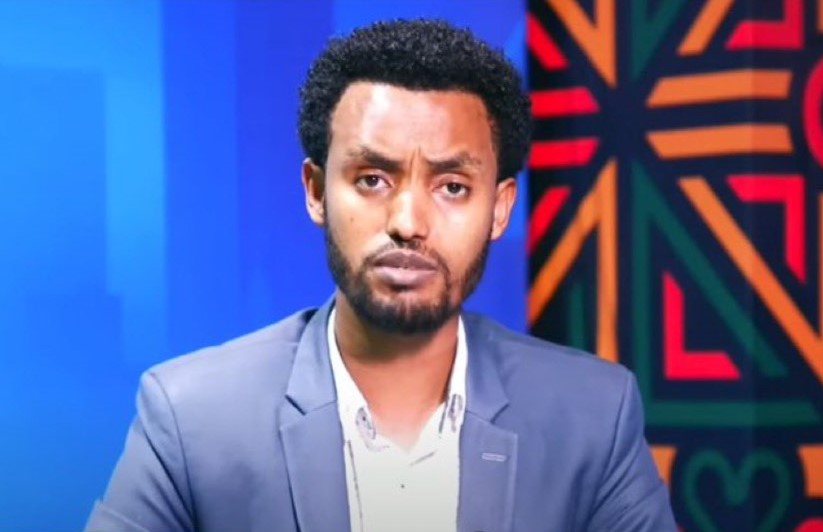The Ethiopian government, led by Prime Minister Abiy Ahmed and Nobel Peace Prize winner, imposed a total blockade against Tigray, a region in northern Ethiopia, after conflict between Tigray Defense Forces (TDF) and government forces broke out in November 2020.
The civil war started in November 2020 after Abiy send his forces to Tigray to depose the regional government. Since the onset of the conflict, gross and widespread atrocities, involving mass killings, rapes, and the abductions of civilians were reported.
In September, the Commission of Human Rights Experts on Ethiopia, created by the UN Human Rights Council last December, reported that it has found evidence of gross human rights violations by all warring parties in the conflict in northern Ethiopia.
The commission said it had “reasonable grounds to believe that, in several instances, these violations amounted to war crimes and crimes against humanity”.
According to the commission’s three independent rights experts, rape, extrajudicial killings, and starvation were used on an immense scale. The experts accused the Ethiopian Government and its allies of deliberately blocking basic services to Tigray including humanitarian aid, medical supplies, telephone, electricity, banking service and internet among others.
“They were intentionally causing great suffering or serious injury to body or to mental or physical health based on their ongoing denial and obstruction of humanitarian assistance to Tigray,” the report said.
Commission chair Kaari Betty Murungi expressed concern over the humanitarian crisis in Tigray and condemned Addis Ababa for appearing to be “using starvation as a method of warfare”.
“The widespread denial and obstruction of access to basic services, food, healthcare, and humanitarian assistance are having a devastating impact on the civilian population,” she said.
“We also have reasonable grounds to believe that the federal government is using starvation as a method of warfare,” she added.
Ethiopian officials have downplayed the UN report. Ambassador Zenebe Kebede, Ethiopia’s Permanent Representative to the United Nations Office in Geneva, downplayed the findings and accused the commission of weaponizing “human rights for political pressure”.
He said the commission’s intentions are to foreclose “all doors of cooperation with the Ethiopian government”.
Similarly, the National Security Advisor to the Prime Minister, Redwan Hussein, called the commission experts a “makeshift political hitman” and questioned its intentions.
“It was meant to give credence to a self-fulfilling prophecy of incriminating and undermining Ethiopia,” he added.
Biafra-like siege
During the 1967-1970 Nigerian civil war, the government purposefully starved the population in the secessionist state of Biafra, leading to the death of up to a million people. Then, starvation became not a consequence of war but a tool of war.
Similarly, when Tigrayan forces retook control of large parts of Tigray, including the capital Mekelle, in late June 2021, the federal government responded by imposing a total blockade by shutting down electricity, internet, telecommunications, transport and banking services for the region.
It further suspended budget to the region, payment of salaries to civil servants and all bank accounts opened in Tigray were frozen. The Federal Government and its allies further obstructed the import of cash, fuel, medical supplies and commercial goods into Tigray by establishing roadblocks and checkpoints.
This led to an extreme shortage of medicines and medical equipment; water and sanitation equipment; fertilizers, seeds, pesticides, and agricultural equipment; and food in a region that relies primarily on subsistence agriculture.
The Ethiopian government has repeatedly denied using starvation as a tool of war.
Experts and activists repeatedly warned that Biafra-like siege was in the making in Tigray region, home to an estimated seven million people.
Dr. Muliro Wil, expert on international relations, security, and conflict says the latest UN report proves the fact that Ethiopia is a closed shell in terms of flow of communication and information and that’s why there is lack of responsiveness towards the researchers.
“The UN report on human rights, the case in Tigray looks like a closed shell where atrocities against humanity are being committed and I think that’s why the report appears to even draw a parallel with Rwanda, bringing out the case of genocidal rape”
“They are drawing a parallel with Nigeria, the case of Biafra, the use of starvation as a tool of war”
After the blockade, the Tigray region remains one of the most inaccessible places for journalists. Communications are deliberately cut off, and journalists are not allowed to travel to the region.
“In Africa we say that if the door remains closed then there is something you are hiding the guilty do that” Dr. Muliro Wil added.
The siege against Tigray didn’t just start during the war, says Million Gebremedhin, an ethnic Tigrayan activist.
“The main road which links the capital Addis Ababa with Tigray was blocked by the neighboring Amhara regional government two years before the Tigray war erupted” Million told The EastAfrican Daily.
“The Federal government didn’t do anything even uttered a word about the blockade while many politicians and activities were opposing it.” He added.
Mr. Million said the ultimate plan of Abiy’s government was Biafra history on Tigray and he holds Ethiopian Prime Minister, Abiy Ahmed and his Eritrean alley, President Isaias Afwerki responsible for the ongoing starvation and deaths of civilians in the war-torn region.
There were mixed reactions to rising questions on whether the Ethiopian government was using a Biafra-like siege against Tigray.
In an interview with The EastAfrican Daily, Metta-Alem Sinishaw, a senior political analyst on Ethiopia and the East African region says comparing Biafra, an openly declared independent state to Tigray, which remains part of Ethiopia appears to be a bit extreme.
“The comparison may have been motivated by the key role that ethnicity played and complication stem from foreign meddling in both conflicts” he said.
“However, there are important differences. Unlike Nigeria, Ethiopia allowed the delivery of humanitarian aid. While Biafra openly declared independence and earned recognition from several countries, TPLF remains part of sovereign Ethiopia”
“Contrary to Biafra whose cause of conflict stems from the indirect rule of British colonial strategy, the Tigray conflict is an internal power struggle”
When asked if the future of Tigray be like Biafra, Mr. Metta-Alem said “Tigray will likely remain as a core region of Ethiopia. Despite TPLF’s intermittent claim for self determination, it has not yet called for cessation”
Making Tigray the next Biafra
Ethiopian government officials have openly claimed to be imposing a Biafra-like siege on Tigray in an effort to subjugate the region and eradicate the TPLF.
The current speaker of the Ethiopia|n House of Federation Agegnehu Teshager called for “Siege on Tigray from all four sides to turn Tigray into Biafra”
Shortly before the humanitarian truce was declared on March 24, the Afar regional government president, Awol Arba, said, “there is no way that we allow aid to reach Tigray.”
“We will not allow even a single bread into Tigray through Afar”
As evidence of the similarities, in 2021, the state-owned Amhara Media Corporation said Tigray’s future is “like Biafra” and Prime Minister Abiy Ahmed then said that the Ethiopian government decides on whether any aid gets into Tigray or not.
On June 23, in a TV interview, Prime Minister Abiy himself argued that the former Derg regime made a mistake during the 1984s famine by allowing humanitarian corridor and aid delivery to Tigray.
Recently the government owned Media Walta clearly made a documentary entitled “Tigray as the next Biafra”
Wodajeneh Meharene, an Evangelical pastor and a close confidant of Abiy, also believes that “locking up humanitarian access” to starve the Tigray people into submission is a legitimate way of bringing the war to a conclusion.
Tigrayan Authorities stated that the international community has failed to properly address the “well-orchestrated campaign” of the Ethiopian Government and its allies “to eliminate the people of Tigray”.
“The international community has failed to call this affront to humanity by its rightful name: genocide.”
Nobel Peace Laureate
Abiy Ahmed won a Nobel Peace Prize in 2019 for resolving conflict with Eritrea, but 11 months later, the Ethiopian leader immediately gone from Peace laureate to a leader caught up in a domestic conflict in the space of two years, pledged victory but also asked the public to take up arms.
The peace laureate plunged his country into a civil war that led to atrocities and famines, committing massacres and genocide against his people, specifically in the Tigray region.
The Norwegian Nobel committee even criticized him over his moves against Tigray.
The committee won’t strip the Ethiopian prime minister of his Nobel Peace Prize, but it did say he bears a “special responsibility” to end the war and humanitarian crisis in his country’s Tigray region.
In a rare public rebuke, the Norwegian Nobel committee earlier this year urged the Abiy Ahmed, to end the war in his country’s Tigray region.
“As prime minister and peace prize laureate, Abiy Ahmed has a special responsibility to end the conflict and contribute to making peace,” the Nobel committee chairperson, Berit Reiss-Andersen, said.
The committee generally refrains from making comments on the actions of laureates, but it then twice urged Abiy to act. It previously expressed its “deep concern” over the situation in Tigray.
“The humanitarian situation is dire and it’s unacceptable that humanitarian aid is not getting through in a sufficient manner,” Reiss-Andersen said.
Peace Deal
Ethiopia’s federal government and leaders in the war-torn Tigray region struck a peace accord on November 2, in South Africa followed by an implementation deal ten days later in Nairobi.
The African Union-brokered deal was a triumph for Ethiopian Prime Minister Abiy Ahmed, as Tigray’s leaders agreed to disarm their forces and restore federal authority in the region.
In exchange, Ethiopia agreed to end siege on Tigray, resume basic services, halt military offensives and ensure Eritrean forces withdraw from territories of Tigray.
It has been over a month since the Peace Agreement was signed but Abiy government has not yet implemented to any of its promises.
The blockade which left almost 90% of Tigray’s – roughly seven million people in desperate need of humanitarian assistance still remains in place.
During the follow-up talks in Kenya, Tigray authorities secured an additional pledge that Eritrean forces would withdraw from Tigrayan territories, but that has not happened yet and they continue to commit horrific atrocities against the people of Tigray including summary executions, rape and sexual assaults.
Following the peace deal, fighting between the two sides has stopped.
Last month, an international think tank group on Wednesday said all parties to the conflict must act responsibly to build a solid foundation for peace.
“Yet the fragile calm could shatter, especially with thorny questions outstanding and Tigrayans already backtracking on commitments,” the International Crisis Group (ICG) said in a statement it issued on Wednesday.
“Both sides need to honor their pledges while keeping up momentum in talks.”
“External actors must seize this moment to coax the parties towards consolidating peace and insist on immediate, unrestricted aid to Tigray,” the crisis group said.
The conflict erupted in Africa’s second-most populous country in late 2020, as Ethiopia struggled to navigate a complex political transition.
The Tigray conflict has claimed the lives of more than 500,000 people.
Abiy rose to power in 2018, after three years of protests partly against the rule of the Tigray People’s Liberation Front (TPLF), which had dominated Ethiopia for almost three decades, creating a repressive system that brought development gains but bred discontent.
(The EastAfrican Daily)


